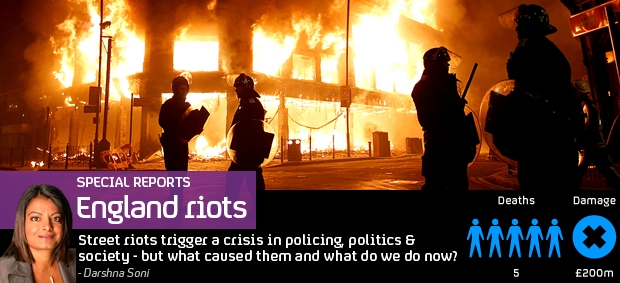Benefits for offenders targeted by Cameron
Courts are to be given powers to strip criminals of up to £25 of their benefits payouts per week, in a move designed to hit back at many rioters who rampaged throughout England in August.
Prime Minister David Cameron has ordered the new reduction to come into force in 2013.
Courts can currently strip £5 from weekly payouts to offenders on benefits – that will be increased to a maximum of £25 per week, which represents about 37 per cent of the current Jobseeker’s Allowance.
Mr Cameron, currently in Perth for the Commonwealth Heads of Government meeting, said that it will show many offenders on benefits they cannot get away with “paying the bare minimum”.
“People need to understand if they commit a crime they will face the consequences.
“The system as it stands at the moment is far too soft and does not always send the right signals.
“(Work and Pensions Secretary) Iain Duncan Smith and I are determined to see responsibility and fairness restored to the welfare system and this clearly does precisely that.
“If you commit a crime and you are on benefits, you can no longer expect to get away with paying the bare minimum.”
Of the 1,350 people appearing before the courts for their part in the England riots in August, around 40 per cent were claiming a state benefit of some kind, according to official figures.
A total of 500 (35 per cent) were claiming an out-of-work benefit, compared with 12 per cent of the general working population in England and 45 per cent of all offenders sentenced for an indictable offence last year.
In all, 100 were claiming disability living allowance, 60 were claiming incapacity benefit and some may have been claiming both.
Mr Duncan Smith said: “The summer’s riots showed that, for some people, the present system did not make them think about what they were doing.
“The PM and I were clear that we would look at all parts of the benefit system and ensure that people feel the full effects of their actions.
“I do not want to be in the business of leaving people without any money to support themselves but, equally, individuals must know that they cannot commit crime that impacts on the livelihoods and the communities of hard-working people without consequences.”
